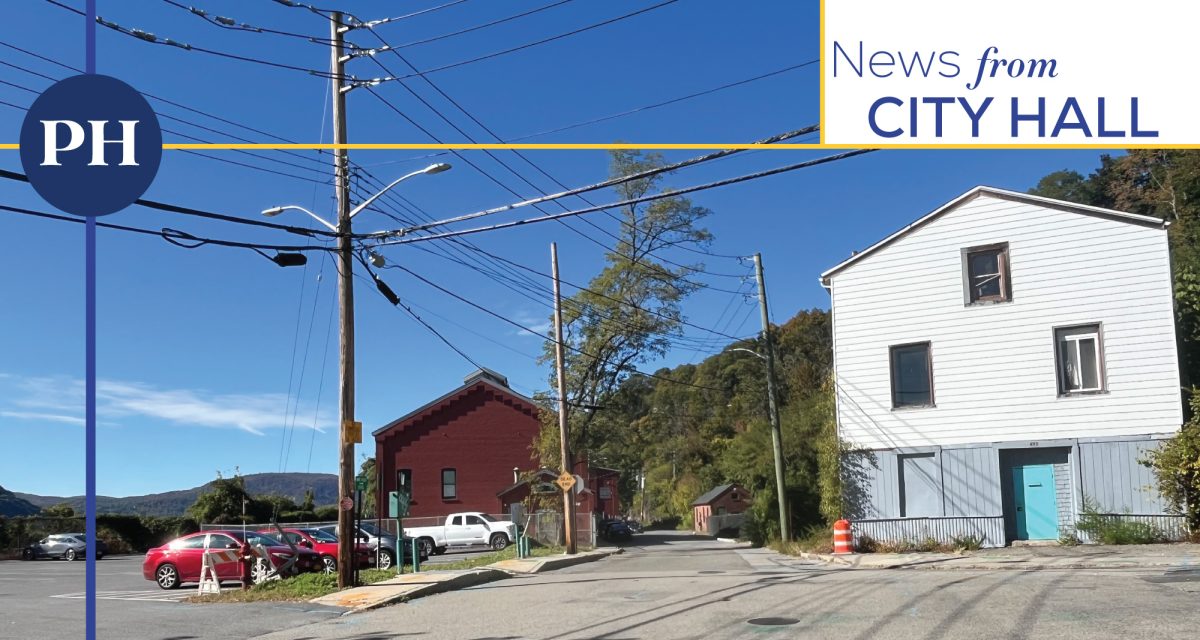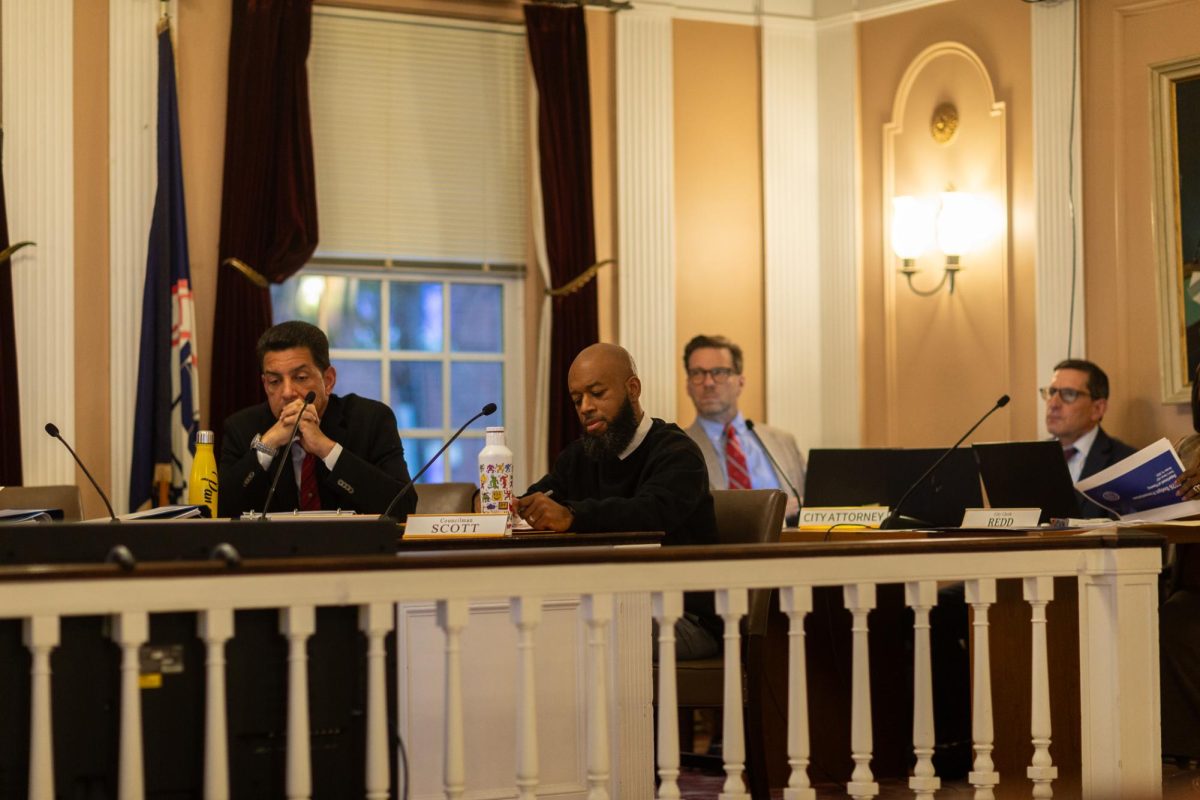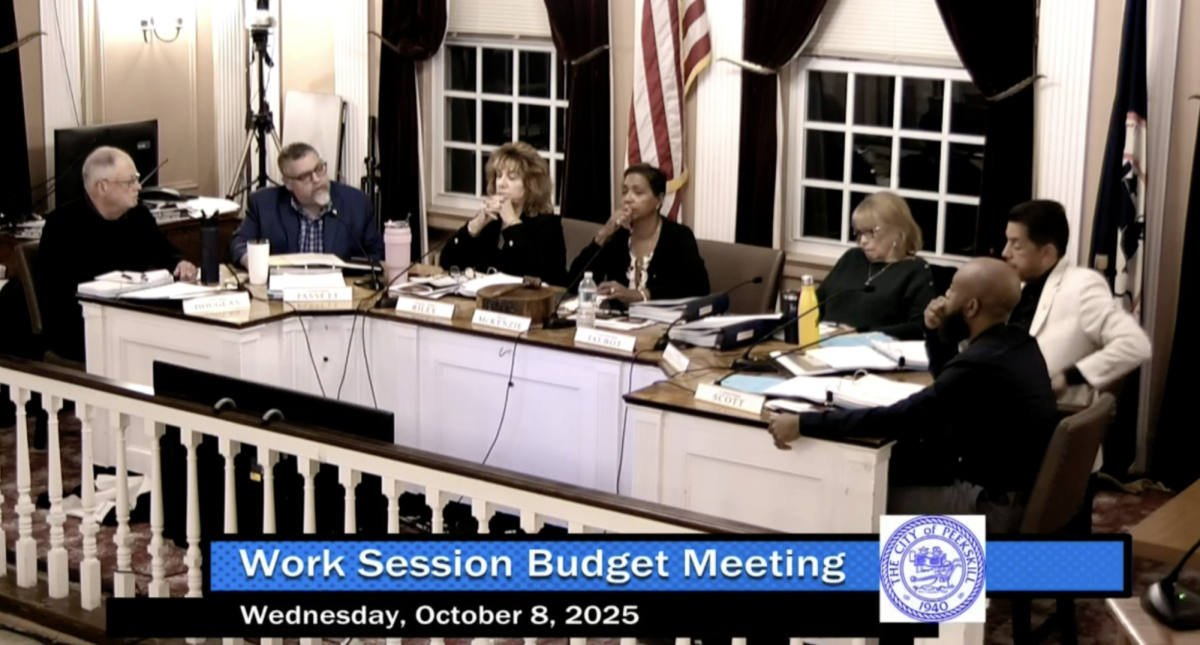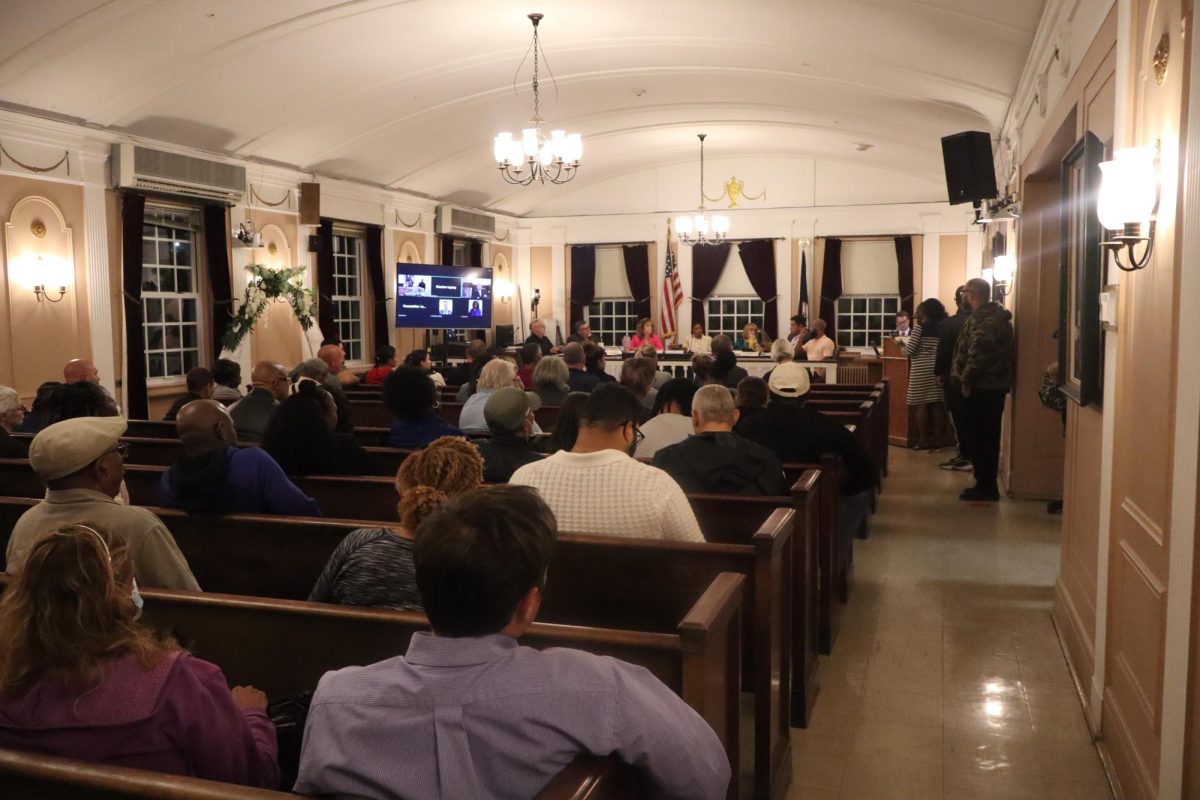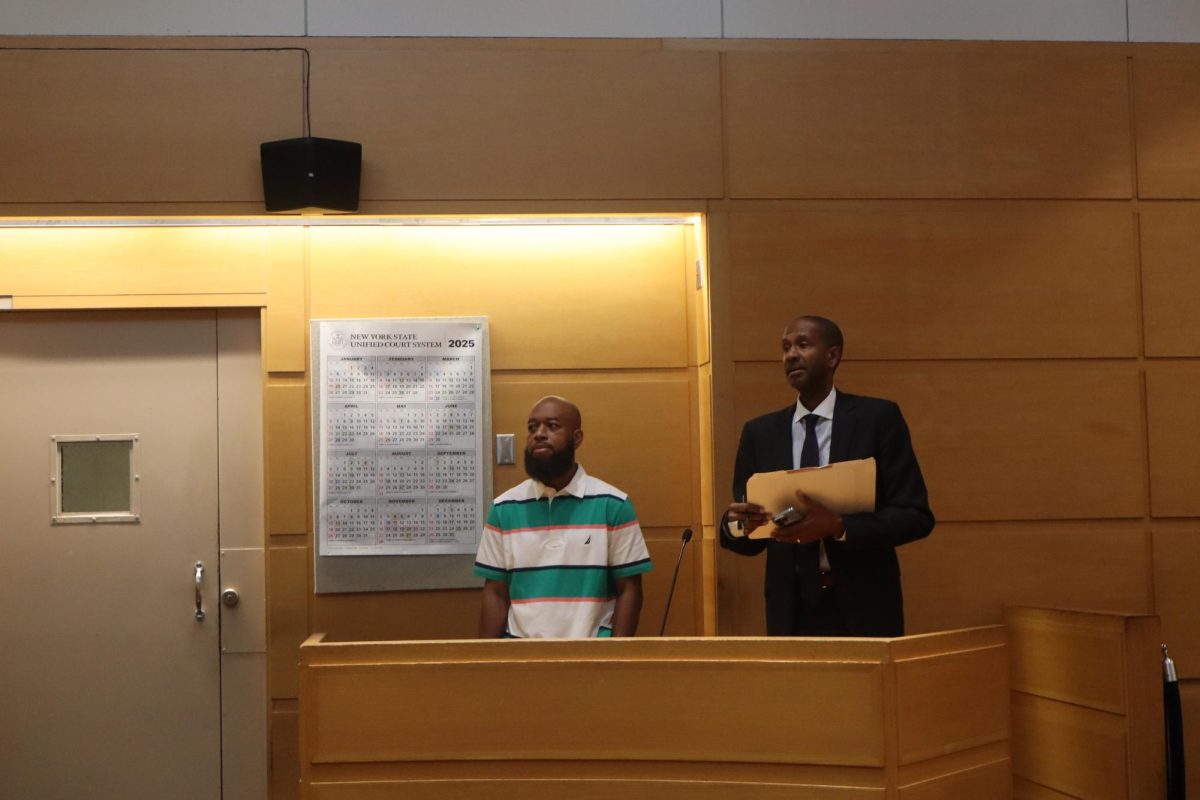As the City of Peekskill is on the path to issuing two bonds totaling over $26 million, Mayor Vivian McKenzie says city staff are ensuring their decisions do not get the city in financial trouble.
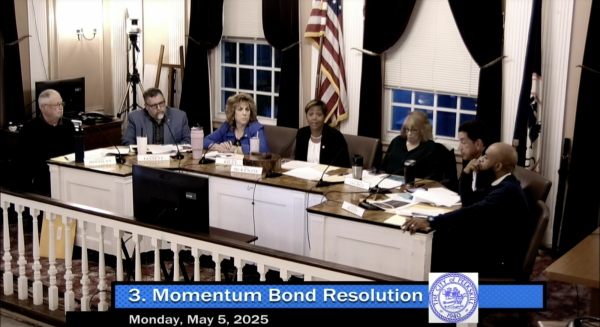
On Monday, May 5, Comptroller Toni Tracy presented information about two upcoming bond resolutions to the Common Council, including a $6.1 million bond for vehicles, equipment, capital projects, and firetrucks and $20 million bond for the Momentum infrastructure project. Although the resolution would authorize the city to issue a $20 million bond, Tracy noted the city plans to issue only $4 million next year to start the Momentum project work, likely for improvements to the James St. and Nelson Ave. garages.
She also presented information on the city’s debt service, showing the city is projected to decrease debt from $49.7 million in 2015 to $22.9 million in 2025. But if the $6.1 million bond is issued this year, that debt will increase to over $29.5 million; if the Momentum project bond is also issued, then the total debt will climb to over $36.5 million in 2025.
In an email to the Peekskill Herald, Tracy wrote that the $6.1 million bond has an anticipated interest rate of 4.1 percent, for an August 2025 issue. The Momentum bond anticipation note for $4 million was quoted at 4 percent for 2025 and 4.25 percent for the full $20 million in 2026. Tracy noted both interest rates are market-based and are subject to change.
When it came to both bond resolutions, Councilmembers Ramon Fernandez and Kathleen Talbot both said the city should heed caution on spending amid economic uncertainties.
McKenzie said the money requests are not arbitrary, but aim to service the city and keep people safe by repairing equipment and vehicles.
“It’s rough, but we’ve come from tougher times, and we’ve done tougher things,” McKenzie said. “And I think we have a great management team here who watches the dollar. And as a council and department heads, we all watch the dollars to do what’s best for the city.”
City to use $20 million to fund improvements to parking garages
On April 28, the council voted to accept $10 million from the New York State Empire Development’s Mid-Hudson Momentum Award to fund essential infrastructure for housing. The grant requires a $10 million match from the city and will not reimburse outlays until the projects are complete.
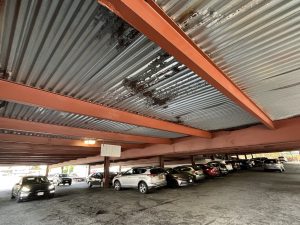
The city plans to use the grant to fund multiple infrastructure projects including upgrading and expanding parking facilities, road and streetscape improvements, sewer repairs and park enhancements, and to support 1,080 potential residential units in the city’s downtown and waterfront districts.
The grant requires the city to start projects within two years of being selected for funding and complete projects within six years.
Tracy outlined the expected borrowing schedule for the Momentum project. In 2025, the city would issue a $4 million bond anticipation note to start work on the James St. and Nelson Ave. garages, then borrow $14 million via bonds at the end of 2026, assuming development projects, which have not been approved, result in a $1.8 million payment to the city next year.
Tracy’s presentation noted that such a borrowing schedule would result in a peak annual debt payment of nearly $5.9 million in 2028, but then provided the Herald an updated figure of $5.4 million. By 2029, the city anticipates the annual debt payment would fall to about $3 million and decrease steadily thereafter, if it receives $10 million in Momentum funds and $1.8 million from the county in 2028. (The annual debt payment for 2025 will be $4.6 million. )

The city will receive the Momentum funds only if it meets development project criteria; Director of Planning Carol Samol said she would provide the council with these criteria by its May 19 meeting.
Fernandez noted that over the next three years, the city’s annual debt payment would increase on average by more than $400,000 each year. He was concerned about how the city could afford the additional expense.
Councilman Robert Scott shared anxieties about the project needing to be completed in order to receive funds. Tracy said if the project were to continue until 2030, large jump payments could be pushed further down the road.
“That’s the real advantage with those notes, is that we’ve got a five year limit,” Tracy said. “If we don’t see the work is progressing for whatever reason as quickly as expected, then that payment will stay lower, and it can move out a little further like that.”
A vote on May 27 will determine if the council will authorize the city to issue a $20 million bond for the Momentum project.
City seeking bond resolution of $6.1 million for vehicles, projects
The city also seeks a bond resolution covering the cost of previously requested funds for capital projects, vehicles for the Peekskill Police Department and Department of Public Works (DPW), as well as two fire trucks and equipment ordered in 2022 that are expected by the end of this year rather than in 2026.
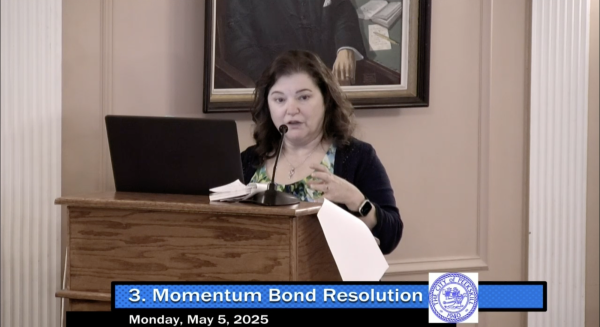
McKenzie said by bundling the fire truck purchases with the acquisition of other vehicles and capital into a single bond, the city will save $382,190 per year for seven years. (The annual payment would have been $952,190 and now it is approximately $570,000.) The savings come from the issuance of a single bond instead of three, and lower interest rates.
Other capital purchases that would be funded by this bond include the replacement of 21 vehicles across the Peekskill Police Department, Department of Public Works, and Community Hub, as well as the elevator in the city court building (2 Nelson Ave.) and Neighborhood Center (4 Nelson Ave.), six cameras, and a traffic light management system survey.
“As we’re heading into budget season and in this uncertain climate that everybody’s referring to, I think we just have to make sure that we’re very cautious about the wish list of the various departments,” Talbot said. “…I think that this year, we really would be prudent to really keep things very close to the bone.”
Tracy said she would conduct a budget variance analysis monthly this year, rather than quarterly, so they could get a more real-time comparison of revenues to expenditures.
“As far as the budgets are concerned, unfortunately, most of what we see from the department heads are not really wish lists,” Tracy said. “We’ve gotten to this point, like the vehicles and equipment, that this has to be done now. I think everybody is being very cautious that way.”
Tracy said she would bring back a resolution next week, on May 12.









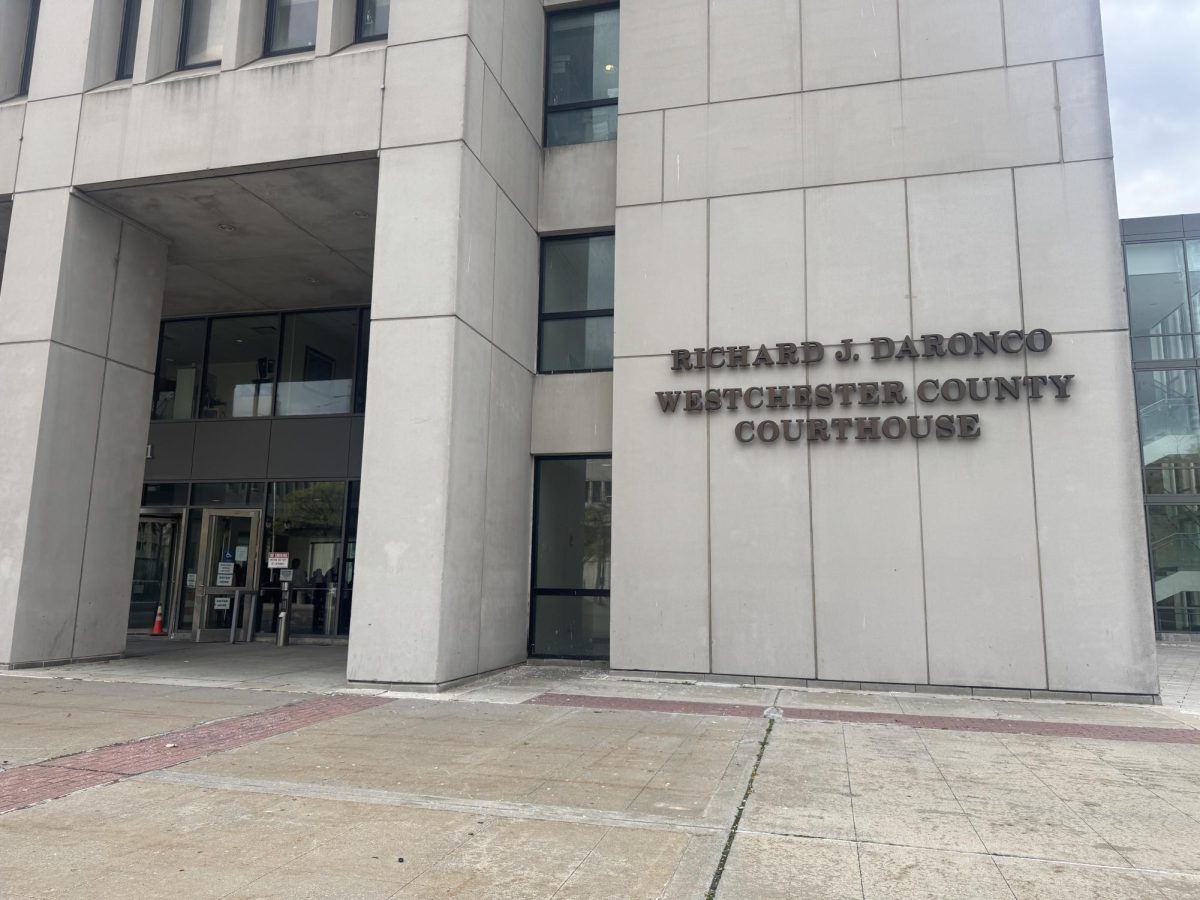



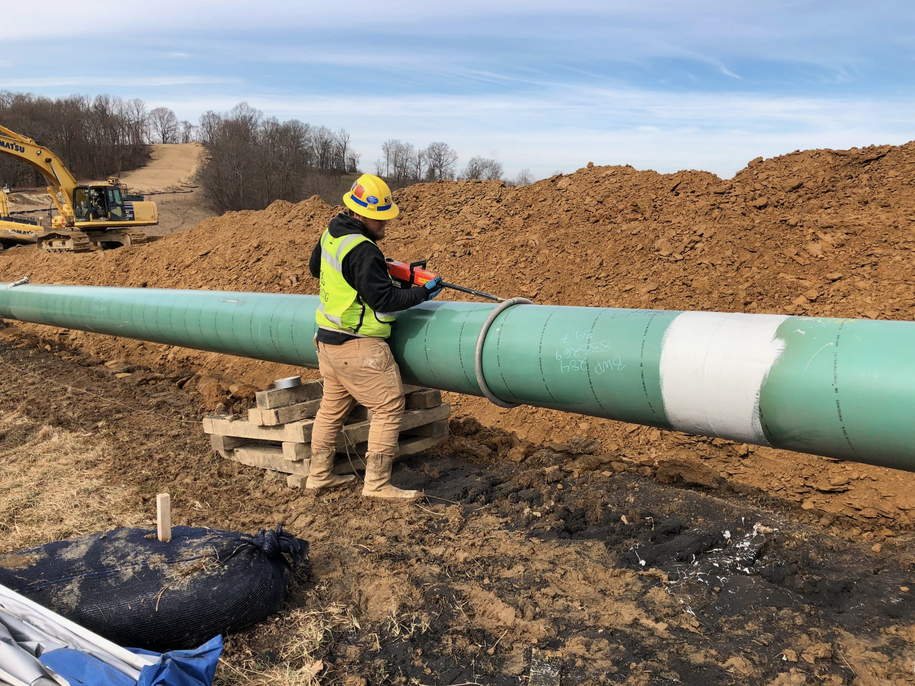

![Peekskill girls volleyball in action against Fox Lane on Oct. 16. (Peekskill City School District]](https://peekskillherald.com/wp-content/uploads/2025/10/Lead-photo-6-1200x640.jpg)
